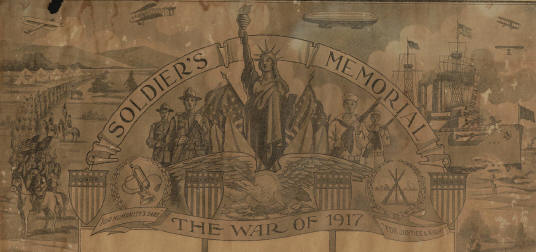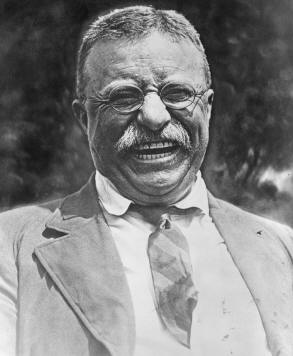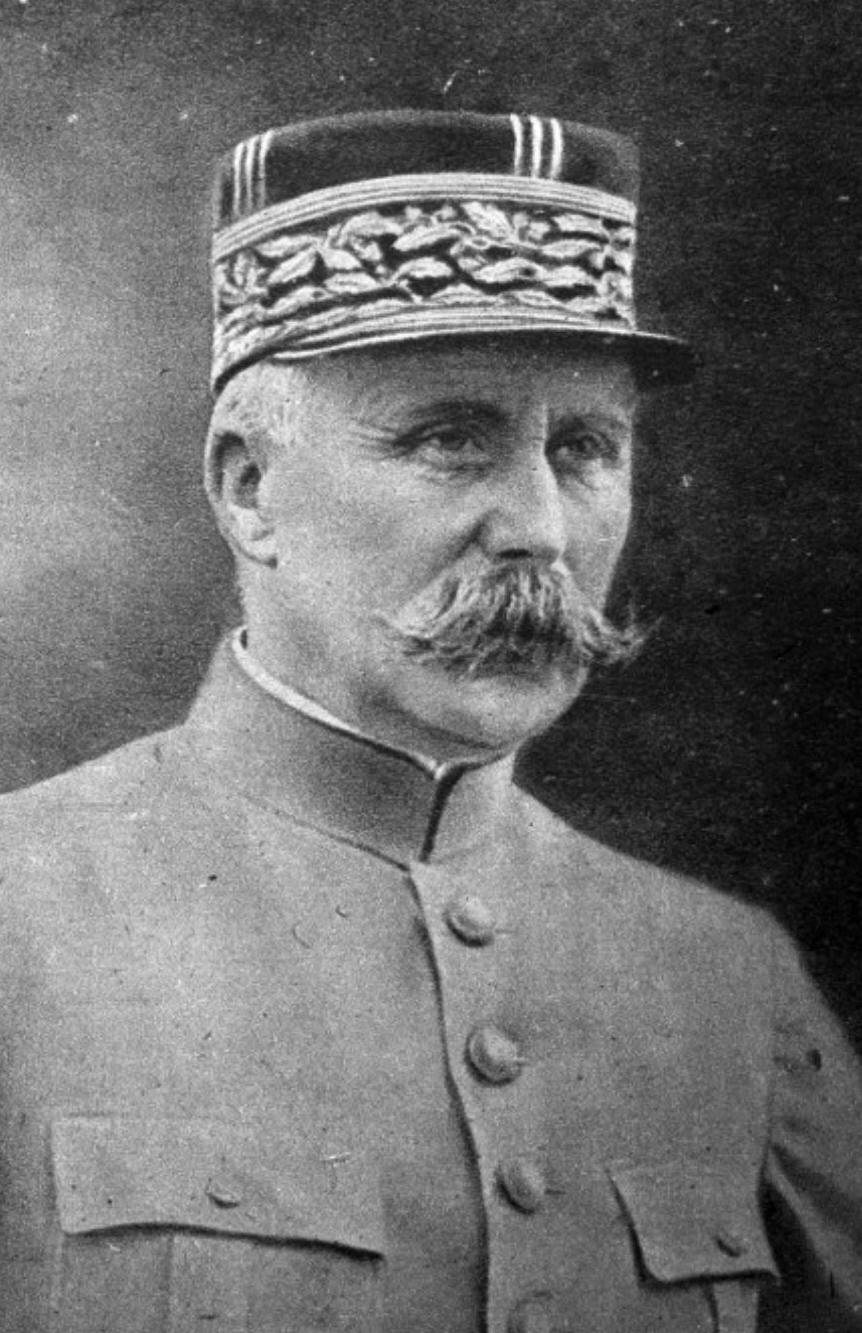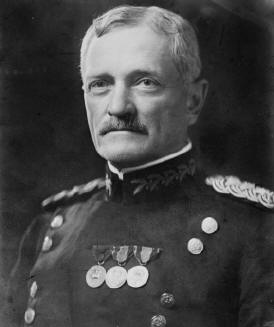May 1917
The ‘War of 1917’

May 4
The British announced that 38 merchant vessels were sunk in the past week.
The Admiralty also announced that the steamer Gena was sunk May 1 by a torpedo discharged from a German seaplane off of Suffolk. This is the first time a British ship has been sunk by a torpedo launched from an aero plane.
American citizens from a vessel sunk by submarines the past few days tell remarkable tales of the strenuous exploits of the U-boats. In one case three U-boats appeared simultaneously alongside the ship, one being a submarine 304 feet long and the others, old-fashioned submarines with lengths of about 120 feet.
In at least two cases, crews of the vessel that was sunk by submarines, were rescued by a passing ship only to suffer a repetition of the disaster when the ship on which they had taken refuge fell prey to another U-boat.
The Captain of an American ship said submarines are lying along the sea-lanes in regular nests. "They keep well under the water most of the time, coming up now and then for periscope observations, or on hearing the approach of merchant craft, which often can be identified readily by the sound of the engines. By saving fuel the
submarines are able to remain away from their ports a long time, especially if they find means of renewing their stores from ships which they sink."
Allied nations have expressed alarm at the growing inroads of the submarine menace, but they do not think it will lead to starvation or the loss of war. They are counting on ships, man and money from the United States, and possibly American inventive genius, to outweigh the U-boat terror.
They point out that Germany faces perils which human ingenuity cannot solve, among them the shortage of manpower, the impossibility of getting food from the outside, and the incapacity to increase interior production further than the limits to which it already has been pushed.
The notion that the submarine menace is a real concern was made clear by Premier Lloyd George in his statement in Parliament that the Allies needed ships and still more ships; and that the destruction of ships by submarines was outrunning construction.
One of the greatest uncertainties of the situation is a total ignorance of the number of U-boats Germany is building. The French estimate that the Germans are building two or three a week, but many officials believed it possible to turn out many more on standard plans.
The eyes of the world are fixed for the moment on the stage behind the battle line, where, inside the closely guarded frontiers of the Central Powers, the bursting of the long brewing storm of discontent is awaited with a mingling of fear and hope.
Extraordinary measures have been taken by the rulers of the Central Powers to prevent the outside world from knowing what is transpiring within their borders. No German newspaper is allowed to pass into a neutral country. Travelers from Germany say that strikes have been going on for the last ten days in Westphalia and the
Rhine provinces, especially in the steel industry.
Meanwhile, from northern Poland to the Carpathians, fighting has taken on a new vigor, and special attention is directed towards the new German invasion of the Russian Baltic provinces, where the Germans claim to be making progress. Along the East Prussian frontier and in central Poland there has been a renewal of the fighting
which the spring floods interrupted.
British, French and German official communications showed that 617 airplanes were shot down on the Western front during April. The Germans lost 369, the French and Belgians 201, and the British 47. This is a great increase over any similar period. The highest previous total was 322 in September.
Detachments of soldiers gathered in front of the headquarters of the Provisional Russian government today, carrying red flags with the inscriptions demanding the resignation of the Foreign Minister, and the resignation of the Provisional government.
Discontent has been smoldering for some time on account of the belief that the Foreign Minister was not fully in sympathy with the viewpoints of the workmen and soldiers. The present outbreak, which began yesterday, was a direct result of the announcement made by the Foreign Office to the Allied nations to the effect that
Russia would not slacken her efforts in the common struggle against the Central Powers and would observe strictly her engagements with the Allies. The workmen and soldiers declared that they should have been consulted before this communication was sent.
When Foreign Minister Milukoff saw the banners, he addressed the demonstrators from the balcony of the palace, saying that he was fearful not for himself, but for Russia. "If the inscriptions interpreted the feelings of the majority of the citizens," he asked, "what must be the condition of Russia? The Allies would say Russia
has betrayed them and has struck her name from the list of Allied powers. The Provisional government cannot accept that view of things. I declare to you that the Provisional government, and myself, as Minister of Foreign Affairs, will defend a position in which no one will dare to charge Russia with treason."
Crowds gathered in groups in the public square listening to impromptu speakers or tutors. Workmen, on leaving factories in the evening, crowded the streets carrying red flags.
The Council of Workmen and Soldier’s Deputies decided to grant complete liberty to soldiers, including ceasing the practice of privates saluting their officers. Maintenance of army discipline is placed in the hands of the troops. Henceforth, each company shall elect a special committee, which will maintain discipline, control
food supplies, take justifiable measures against abuse of powers by military chiefs, and settle disputes between officers and soldiers.
May 11
An acrimonious controversy is now raging in Germany between the big annexation, little annexation, and advocates of no annexation and indemnification whatsoever parties.
The Pan German League has sent circulars to its branches throughout the country asking them to organize meetings everywhere in the interest of German peace, and against the Socialist peace program. The League is demanding peace with indemnification, increase of territories and greater power for Germany.
The Socialist, on the other hand, are strengthening public opinion for peace with no indemnities and no annexations. The Socialist obviously are endeavoring to sweep the government and the Imperial Chancellery into a declaration of the German peace aims on similar lines, which could be used at the Stockholm conference.
The moderate elements, who favor taking what can be gotten, are assailing the Chancellor for weak-kneed shrinking from trouble, and demanding resolutions adopted by the Liberal party that the Chancellor now make a clear and definitive statement of policy as a step toward peace.
Imperial organizations declared that the Socialist’s proposals are depressing and shameful to all patriots. Germany, they say, must have indemnification for her enormous sacrifices and to develop economic, cultural and social life after peace is declared. Germany must secure better protection for its frontiers, land for
settlement and food production, the strengthening of its naval position and the improved conditions of its industries for greater supplies of raw materials.
Meanwhile in Russia, the Council of Workmen and Soldier’s Delegates repeated previous declarations that the imperialistic attitude of the Provisional government was unacceptable, saying, "neither the soldiers nor workmen are for war. If the government does not mean to abide by our watchword of peace without annexations it will
have to make itself clear."
In consequence of the disorders that occurred in Petrograd, the Executive Committee of the Council has decided unanimously to prevent all public meetings and demonstrations. Anyone who takes part in any demonstrations or fires a shot will be regarded as a traitor to the cause of the revolution.
In its explanation of the note of May 1, the Provisional government gave to the Council the following note it will be forwarding on to the Allied governments:
"The Provisional government of Russia deems it to be its right and duty to declare now that free Russia does not aim at a dominion of other nations or at depriving them of their national liberty, or occupying by force, foreign territory, but that its object is to establish a durable peace on the basis of the rights of nations
to decide their own destiny. The Russian nation’s aim is not to subjugate or humiliate anyone. In the name of the higher principles of equality, the Russian people have broken the chains which fettered the Polish nation, but it will not suffer that its own country shall emerge from the great struggle humiliated or weakened in its vital force."
In response to this note, the Bolsheviks, the most radical of the Socialist groups, demanded that the Provisional government rupture the treaties between Russia and her Allies and cease the war immediately.
Meanwhile the Russian commander on the western front has issued an order declaring that the fraternization of Russians with enemy troops must be stopped. He declares that such fraternization, which has become common practice, enables the enemy to learn Russian military strategies and also, by causing a lull on the Russian
front, leaves the Germans free to concentrate forces against the British and French. He says that three divisions of Germans have already been transferred from the Russian front and that others are following, including artillery and aircraft.
The General warns the troops that if the fighting comes to a standstill in France the Germans will throw all their forces against the Russians, who, will by promises of peace, would not be in readiness to repel the attack.
Great Britain formally joined France last night in expressing hope that an American expeditionary force soon would take his place on the Western front in Europe. The British foreign secretary told the Council of National Defense that the British would be overjoyed to welcome an American force in France, and that its early
dispatch could have an enormous psychological effects both on the Allies and on their enemies.
May 18
An Army of volunteers, led by Theodore Roosevelt, is possibly taking action late in the House of Representatives, which voted by 215 to 178 to send the Army Conscription Bill back to conference with instructions to write into the bill a paragraph permitting the raising of four divisions of troops, 80,000 men, the general
understanding being that Roosevelt and his ‘big stick,’ would be the commander of this new generation of ‘Rough Ride rs." The Conscription Bill calls to the colors every male American between the age of 21 and 30.
rs." The Conscription Bill calls to the colors every male American between the age of 21 and 30.
Despite the pleading of the Chair, the galleries of the House could not refrain from a ‘whoop’ at the mention of the Colonel's name. One Representative commented that while he did not know what the army general staff wanted; he did know that the American people wanted Roosevelt.
Will Roosevelt lead an army in France? This question took precedence in Washington over all other topics. The subject was discussed by Army men from a technical and professional angle - whether it would be proper to raise an independent force outside the proposed conscription plan. Politicians could not see anything but
politics in the move to put the former Rough Rider in the Conscription Bill.
In dispatches from Oyster Bay, Roosevelt said: "They have taken a step which is eminently wise and patriotic towards enabling us to utilize troops the country would otherwise not utilize at all. This will enable a mixed force of regulars and volunteers to be put to the front door and give the time necessary for training the
great army raised under the selective draft."
Meanwhile the political situation in Russia is demanding increased attention and causing a concern among all the Allied nations. Under the continued harassing course of the radical elements in Petrograd, the Provisional government, which has held Russia together since the overthrow of the old regime, now shows signs of
breaking up.
The first break in the government ranks was created yesterday, when the Minister of War handed in his resignation. Goaded by interference with the Army and Navy to an extent which he declared "threatens the defense, the liberty, and even the existence of Russia," he felt it impossible to share longer the responsibility for the
grave sins being committed against the country. Several Army commanders proposed to follow the example of the Minister of War and resign, owing to the impossibility of fulfilling their duty to the country under present conditions. Simultaneously there came from Petrograd news of a more discouraging character in a report that the Council of Workmen's
and Soldiers Delegates were favoring an armistice.
Disorganization, almost anarchy, has reached such proportion that it seems extremely doubtful whether any concentration of power in the government or the belated reconciliation of the two forces, which have been pulling in opposite directions, will create order out of the present chaotic condition.
A Russian commander on the South West front declared that the Germans have tempted Russian soldiers by offering them. He added that the desertions are having a negative influence on the Army's rear along the railroads and in villages, and that if the lack of discipline was continued it must entail the ruin of Russia.
Commanders on the front declared that the unfortunate phrase, "Peace Without Annexation," has found its way to the Army and was then translated into an argument against offensive war. This and other harmful doctrines prevailing in the Army and the inability of the officers to satisfactorily explain them, has ruined discipline
and destroyed the authority and prestige of the officers.
 Meanwhile on the Western Front, General Petén was appointed as Commander-in-Chief of the French armies operating on the French front today. Petén,
who was a retired colonel at the outbreak of the war, is the man to whom many Frenchmen have been looking for the initiative, which would win a decisive success on the French front. To him, more than to any other commander now in active service, the legend of success is attached. Petén
became a popular idol of the soldiers for his defense of Verdun.
Meanwhile on the Western Front, General Petén was appointed as Commander-in-Chief of the French armies operating on the French front today. Petén,
who was a retired colonel at the outbreak of the war, is the man to whom many Frenchmen have been looking for the initiative, which would win a decisive success on the French front. To him, more than to any other commander now in active service, the legend of success is attached. Petén
became a popular idol of the soldiers for his defense of Verdun.
In Germany, it is reported that since the death of Count Zeppelin, who was always supported by the Kaiser for his aerial plans, a number of employees in the Zeppelin factory had been dismissed in order to join the Army. The framework of a large airship, which would have been finished in six weeks, will not be completed for
several months, owing to the lack of workmen. The general opinion of workmen at the facility is that Germany will construct no more Zeppelins. No further orders for building have been received.
May 25
 Under orders from President Wilson, a division of approximately 25,000 troops carrying the Stars and Stripes will go to France as soon as possible under the command of Maj. Gen. John Pershing.
Under orders from President Wilson, a division of approximately 25,000 troops carrying the Stars and Stripes will go to France as soon as possible under the command of Maj. Gen. John Pershing.
But it was Wilson’s statement explaining his reasons for not accepting at this time Colonel Roosevelt’s offer to take command attracted much attention. The President explained that the regular army officers whom the Colonel wanted to take with his division were needed for the much more pressing and necessary duty of training
regular troops to be put in the field in France and Belgium as fast as they can be readied.
Presumably Gen. Pershing will select, in conference with French and British officials, when he reaches the scene of action, the location for the American training camps in that part of the line in which the American troops that will later be assigned, will also be determined. The first expedition force will pave the way for
the armies that will follow it as soon as they are ready.
The machinery to build those armies is in full motion. Early reports indicate a tremendous stimulation of recruiting for the regular Army and the National Guard as a result of the publication of the President’s proclamation fixing June 5th as Registration Day for the selective draft army.
Mail trains leaving Washington last night were laden as never before with registration cards, enrollment blanks and all the data necessary to register 10 million men for the new armies. The first shipment went to states and municipal offices in the far west and other remote parts of the country. The Draft army will not be
called to colors until about September 1, but by that time the regular troops are expected to be in action against the Germans.
Colonel Roosevelt expressed his pleasure that Gen. Pershing was to command the first American troops that will go to France. "At this time, I have nothing to say," the Colonel replied, when questioned about the President's decision not to send him as the commander.
Meanwhile, the Pension Bureau, which has received two applications for pensions on account of deaths since the declaration of war, said that the war will go down in its books known as "The War of 1917." Announcing the official designation, the Bureau said it was decided on this name for the present war for use in the records
because no other suitable name could be found for the war.
Meanwhile in Russia, the Council of Workmen and Soldier’s Delegates, has decided to participate with the Provisional government in a coalition government. Before voting, representatives of the general staff visited the Council’s Executive Committee and spoke most earnestly of the seriousness of the situation.
The reorganization of the Russian government was regarded here both as increasing the power of the radicals. It is greatly felt that the coming into power of the radical party is more desirable than a situation where the power was divided between the radicals and moderates, with both practically powerless to act.
The government consented to the Council's demand for the democratization of the Army, but insisted they come with a strengthening of Russia's fighting forces. The declarations also promised Socialist control over the production, transportation, sale and distribution of products, measures for the better protection of labor,
settlement of peasant ownership of land, and increased taxation on the wealthy. In return, the Provisional government demanded the main Socialist elements fight the reactionary counterrevolution now underway by the anarchist of the extreme left.
In reaching the accord with the Council, the Provisional government accepted the Council's demand to take steps towards the attainment of an agreement with the Allies which will realize the government's declaration of April 2.
To this end, a series of important negotiations is pending between Russia and her Allies on the question of a revision of war aims. The Russian Foreign Minister notified the Allies of Russia’s desire for peace without annexation or contributions, and that Russian workers, while not desiring a separate peace, cannot support the
Allies in the present war program. A revision of the treaties between the Allies and the Russians will be requested, and it is believed that the Allies will call conference to consider the whole question of Russia's future in the war. It is believed that the coalition government will stand or fall according to the position that the Allies take in the
pending negotiations.
Minister of War Kerensky, addressing the Congress of Peasants, announced his determination to introduce an iron discipline into the Army. He made an impassioned appeal for support in restoring the morale of Russia's military forces. Following his speech, Kerensky issued the following order to the Army: "This country is in
danger. Each one must do what he can to avert the peril. No request to be allowed to resign made by officers in high command with a desire to escape responsibility at a time so grave will be accepted by me. Deserters are enjoined to return to the Army and Fleet by May 28, infractions of this order will be punished by firing squad."
Meanwhile, agrarian disorders, wholesale confiscation of property, incendiarism, and other dangerous symptoms of anarchy, which followed the overthrow of the old authority in many important industrial centers in agricultural districts of central and southern Russia, are becoming more serious. Peasants have burned or sacked or
appropriated government and private property, and driven their cattle into fields where grain was being reserved for the aristocracy. A general state of anarchy prevails.
Read past editions of News Reports From the Front